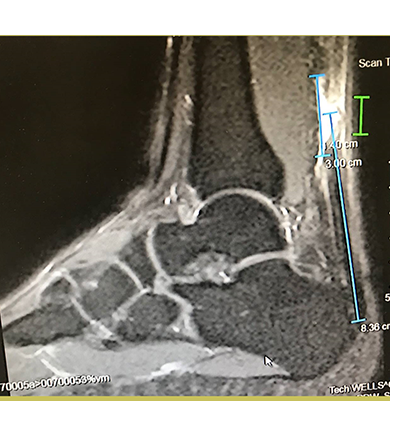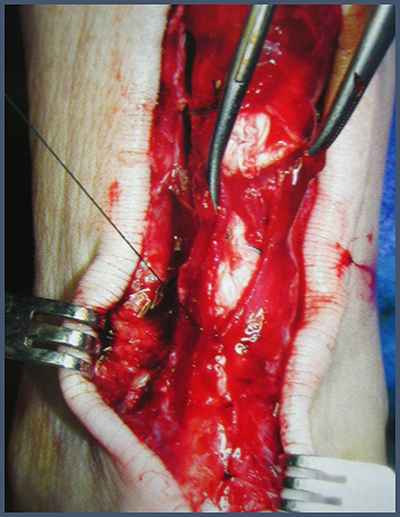
Residency Insight
The Ruptured Achilles Tendon Elongates for 6 Months After Surgical Repair - Article Review
The Ruptured Achilles Tendon Elongates for 6 Months After Surgical Repair - Article Review

There are many articles revolving around the treatment of Achilles tendon ruptures. Many questions remain without a clear answer and always come down to the surgeon’s judgment. While most articles relate to surgical vs non-surgical, or the best surgical technique for repair, this article out of Denmark recently published in 2018 set out to study the effects of different rehabilitation regimens after surgical repair and their effects on tendon elongation. While the primary outcome was to examine the amount of tendon elongation, they also investigated the effects of the rehabilitation regimen on mechanical properties, and functional outcomes.


This study is a level I randomized controlled trial, which included 75 patients who underwent surgical repair of an Achilles tendon rupture and were placed into three different prescribed rehabilitation regimens. The first 8 weeks of rehabilitation had variations amongst the three groups. All patients then received the same instructions for home exercises starting at week 9. The first group was completely restricted from weight-bearing until week 7, the second group was completely restricted from weight-bearing until week 7 but performed ankle joint mobilization exercises, and the third group was allowed partial weight-bearing from day 1 and full weight-bearing from week 5.


This group out of Denmark hypothesized that restricted early weight-bearing that only permits limited motion in the early phase would limit the amount of tendon elongation as well as improve functional outcomes. The use of tantalum metal beads were utilized intraoperative and placed on either end of the ruptured tendon in order to allow measurement of the amount of lengthening that occurs radiographically during the rehabilitation process.

The study showed no differences in tendon elongation between the three rehabilitation regiments.
This study proved to be well-designed with very few weaknesses. Their results showed no differences in tendon elongation, cross-sectional area on MRI, or patient-reported outcomes between patients who were prescribed late weight bearing versus early weight bearing following surgery. Overall elongation increased from 6-12 weeks and from 12-26 weeks, but not from 26-56 weeks. However, the amount of elongation showed no significant difference between the groups. Similarly, the plantar flexion muscle strength was found to have no interaction or group effect. All of these results were not in support of the authors’ hypothesis. The results clearly suggest increased tendon elongation for at least six months, regardless of the rehabilitation regimen post-operatively.
The results show tendon elongation occurred for at least six months, regardless of the rehabilitation regimen post-operatively

This article teaches us three important points:
- Achilles tendon elongation occurs post-operatively for up to 6-12 months, regardless of the rehabilitation regimen.
- Although elongation ceased up to six months, patient-reported functional results, muscle strength, as well as muscular endurance did not reach normal values at that time, which indicate that the time to full recovery after rupture is at least 12 months.
- Lastly, attempting to be more aggressive with rehabilitation will not result in more elongation than if choosing a less aggressive rehab program. We know from other studies that an early and aggressive rehabilitation program leads to decreased stiffness as well as decreased pain post operatively.
-
Reference:
Eliasson P, Agerogaard AS, Couppe C, et al. The Ruptured Achilles Tendon Elongates for 6 Months After Surgical Repair Regardless of Early or Late Weightbearing in Combination With Ankle Mobilization: A Randomized Clinical Trial. Am J Sports Med. 2018 Aug;46(10):2492-2502. doi:10.1177/0363546518781826.
Follow this link



Comments
There are 0 comments for this article